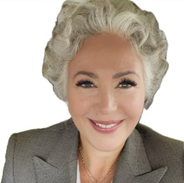Emotionally Intelligent Career Goals for 2025: A Journey Toward Fulfillment and Growth
As we enter 2025, the fresh pages of a new year invite us to reflect, recalibrate, and reimagine our professional journeys. Setting career goals is more than checking boxes or chasing titles—it’s about aligning with your values, nurturing your growth, and creating a path that resonates with your purpose. This year, let’s infuse emotional intelligence into our career aspirations and build goals that reflect what we want to achieve and who we want to become.
1. Start with Self-Awareness
Before you can set meaningful goals, take the time to understand yourself. What drives you? What are your strengths, passions, and areas for growth? Self-awareness is the foundation of emotional intelligence and the compass that guides your career decisions.
- Reflection exercise: Write down three moments from 2024 when you felt fulfilled in your work. What made those moments meaningful?
- Use these insights to shape goals that align with your strengths and bring you joy.
2. Embrace Adaptability
The modern job market evolves quickly, constantly emerging new opportunities and challenges. Building adaptability into your goals allows you to navigate change gracefully and resiliently.
- Instead of rigid objectives, create milestones that allow for flexibility. For example, aim to “improve your leadership skills” rather than securing a specific promotion by a set date.
3. Prioritize Relationships
Success isn’t achieved in isolation. Emotional intelligence emphasizes the value of building strong, authentic relationships. For 2025, make it a goal to invest in your network, seek mentors, and foster collaborative partnerships.
- Action step: Attend industry events, join professional groups, or schedule monthly coffee chats with colleagues.
4. Develop Your Emotional Agility
Your career journey will come with its share of highs and lows. Emotional agility—the ability to manage emotions constructively—is key to thriving.
- Include resilience-building in your goals. This could mean practicing mindfulness, seeking feedback, or handling constructive criticism.
- Celebrate not just achievements but also the lessons learned from setbacks.
5. Align Goals with Purpose
Career goals grounded in purpose are inherently more fulfilling. What impact do you want to have on your organization, your community, or the world? When your goals reflect a deeper purpose, they become a source of intrinsic motivation.
- Example goal: If sustainability is a core value, consider aligning your career with roles or organizations prioritizing environmental responsibility.
6. Commit to Lifelong Learning
In 2025, commit to being a student of life and work. Whether mastering a new skill, earning a certification, or exploring an entirely new field, lifelong learning keeps you sharp and future-ready.
- Tip: Identify one skill you’ve always wanted to learn and dedicate time to it this year.
7. Be Kind to Yourself
As you work toward your goals, remember to practice self-compassion. The path to success is rarely linear, and adjusting your goals as you go is okay. Celebrate progress, no matter how small, and give yourself grace when things don’t go as planned.
2025: A Year to Thrive
This year, let your career goals be more than ambitions on paper—let them be a reflection of your growth, values, and aspirations. As you navigate the months ahead, remember that your career is not just a destination but a journey. By infusing emotional intelligence into your approach, you’ll not only achieve your goals but also create a career—and a life—that feels meaningful and authentic.
Here’s to a 2025 filled with purpose, growth, and success!
What’s your top career goal for 2025? Share it in the comments of the USJoblink post—we would love to cheer you on!

Elizabeth Ruiz: Strategic Communication and Leadership Expert
Elizabeth Ruiz is a seasoned strategic communication and leadership expert, passionately dedicated to exploring how ethical leadership, psychology, and communication drive organizational success. With a career rooted in applying advanced leadership theories, Elizabeth’s work in management consulting, strategic HR, and organizational effectiveness helps corporate, governmental, and nonprofit organizations transform their management practices. When she isn’t teaching or studying as a student, she writes extensively on topics such as strategy, management, and the psychology of effective leadership.
Elizabeth’s approach is defined by her unwavering belief that true leaders are lifelong learners. Connect with Elizabeth on LinkedIn.
